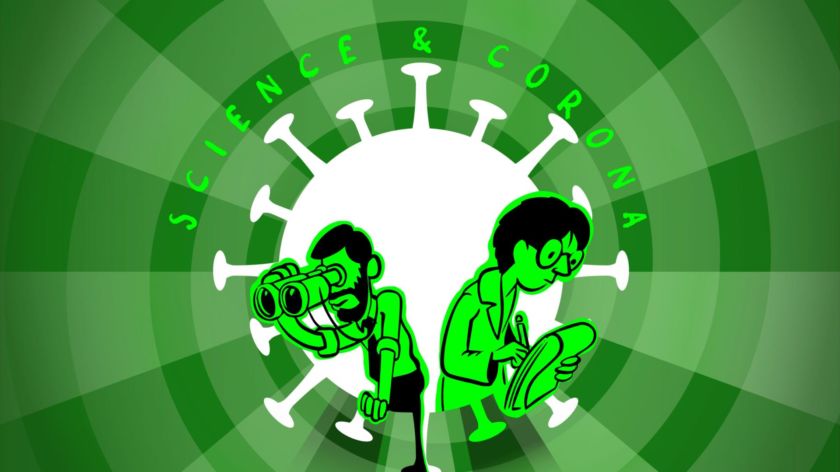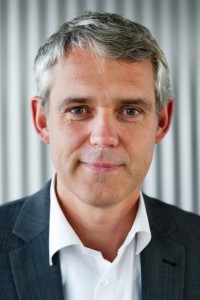The coronavirus has consequences even behind the moon
-
 Illustration: Roel Venderbosch
Illustration: Roel Venderbosch
The worldwide corona crisis is unparalleled in history. Which makes it interesting for scientists. How do Nijmegen researchers view the situation, from their professional field? In Part 9 of this series, Science & Corona, astronomer Heino Falcke views the pandemic from a cosmic point of view. 'Humans often see themselves as rulers of the earth, but we can be annihilated by both the enormous – asteroids – and the minuscule: viruses.'
The contrast between now and a year ago could hardly be greater for Heino Falcke. In the spring of 2019, this astronomer was at the epicentre of the worldwide focus on the first photo of a black hole, made under his supervision. Now he sits quietly in his house in Cologne, putting the finishing touches to an illustrated book about black holes: Licht in de Duisternis (Light in the Darkness). ‘All over the world, almost none of the telescopes are in operation’, he tells us. ‘We were just about to start new measurements of the black hole in the Milky Way, at the beginning of April, but that has now been postponed for at least a year.’

Falcke, a professor in Astroparticle Physics, believes that the virus outbreak is teaching us a lesson in humility, just as the universe does. ‘Humans often see themselves as rulers of the earth, but we are not the measure of all things. Humanity can be annihilated by both the enormous – asteroids – and the minuscule: viruses.’
Spaceship
The vulnerability that many are now feeling is clear in the blink of an eye when seen from space, Falcke is sure. The atmosphere in which we all live is a shell around our planet, a mere two kilometres thick. ‘We are an insignificant little island in the vast ocean of the universe.’
Not that the professor means to say that our lives are not valuable. On the contrary. It emphasises just how much we need each other. The universe cannot help us, so we will have to work it out together. ‘The earth is our spaceship and we need to look after it well. It has to be kept properly, just as your own house.’
And he is absolutely convinced that we are doing that during this corona crisis too. ‘The fact that we are doing everything in our power at present to protect the vulnerable, such as the elderly, just shows how strong humanity is. We want to collaborate – “every man for himself” will not work.’
‘You can see in nocturnal satellite photos how we are connected with each other all the way to the farthest corners of the earth’
And it’s precisely in that strength that our weakness lies, and from which the virus is profiting. We are a global community, whether you like it or not. ‘You can see from the lights on a nocturnal photo of the earth how we are connected with each other all the way to the farthest corners of the earth, and how multitudinous we are.’ There’s a good reason for why the virus has spread so unbelievably fast, faster than any other pandemic in history.
Avalanche
Falcke was worried by the speed of the spread from day one. An astronomer has an affinity with numbers and therefore also with exponential increases. Look at gravity, at gravitational acceleration. That’s why the speed of an object also increases exponentially, if it is drawn by something like a star or a planet. In the case of a black hole, that power will eventually become so great that at a certain point, it becomes impossible to turn around.
Lastly, he points out that the consequences of the corona outbreak can be seen even in the universe. His group’s radio telescope, which is attached to a Chinese satellite behind the moon, was about to carry out its first real measurements when the coronavirus broke out in Wuhan. The Chinese were to have started up the measurements. ‘But nothing happened after the lockdown. We weren’t even able to communicate with them anymore.’ He laughs. ‘Imagine that: such a tiny virus having an effect on what happens behind the moon!’



